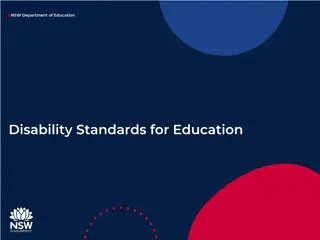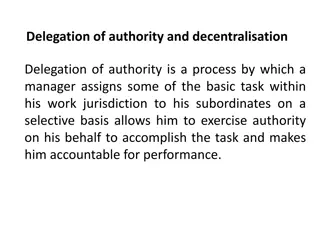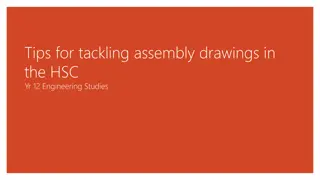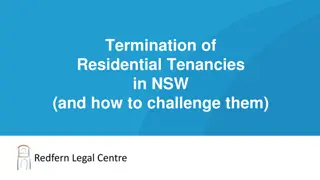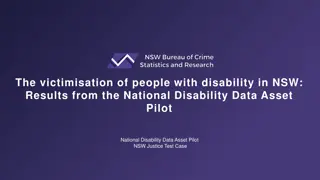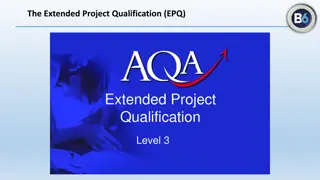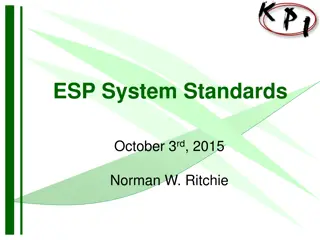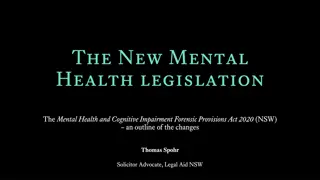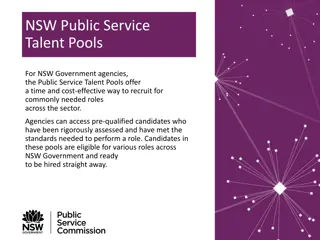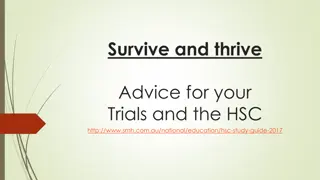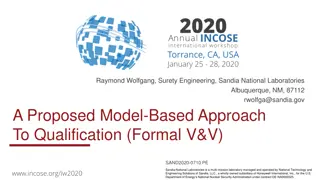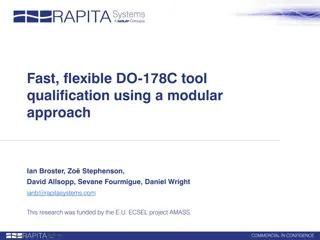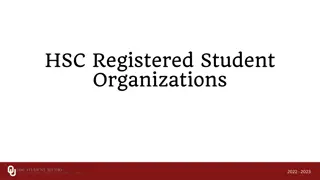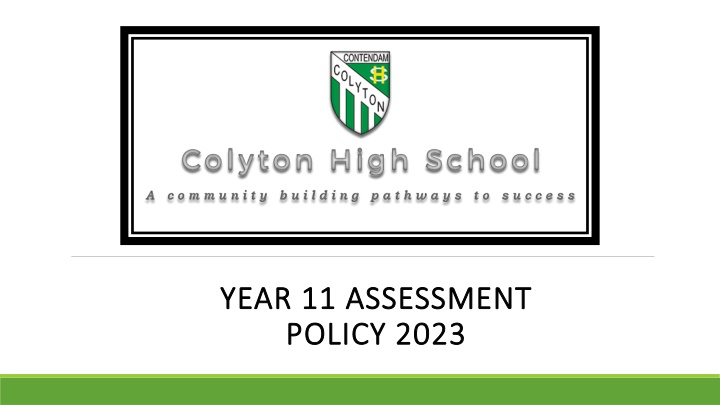
NSW Education Standards Authority Requirements for HSC Qualification
In order to qualify for the Higher School Certificate (HSC), students must meet specific criteria set by NESA, including completing a pattern of courses, fulfilling syllabus requirements, and demonstrating satisfactory course completion. The school also holds responsibilities in providing assessment guidelines and schedules, as well as feedback and support for students throughout their academic journey.
Download Presentation

Please find below an Image/Link to download the presentation.
The content on the website is provided AS IS for your information and personal use only. It may not be sold, licensed, or shared on other websites without obtaining consent from the author. If you encounter any issues during the download, it is possible that the publisher has removed the file from their server.
You are allowed to download the files provided on this website for personal or commercial use, subject to the condition that they are used lawfully. All files are the property of their respective owners.
The content on the website is provided AS IS for your information and personal use only. It may not be sold, licensed, or shared on other websites without obtaining consent from the author.
E N D
Presentation Transcript
YEAR 11 ASSESSMENT YEAR 11 ASSESSMENT POLICY 2023 POLICY 2023
Students Online https://studentsonline.nesa.nsw.edu.au/ is the NESA site where students access their individual enrolment details and results as well as information about study from Year 10 to the HSC. It is important that you check this regularly as you will be receive messages from NESA regarding the following: You need to make sure your personal information is up to date eg address, DOB Students online Students online HSC timetable HSC due dates for major works HSC results (you can choose how you wish to receive these results)
NSW Education Standards Authority Requirements In order to qualify for the Higher School Certificate, the Principal must certify to NESA that you have satisfactorily completed a pattern of courses which meets NESA's requirements. Pattern of Study To be eligible for the award of the HSC a student must have satisfied the requirements in at least twelve Page 4 Preliminary level units, and at least ten HSC level units, with the additional requirements that: Requirements at least two units must be English units; at least six units must be Board-developed courses; at least three courses are of two unit or greater value; at most 7 units of Science can count towards the HSC; at least four subjects (including English) have been completed.
To complete a course satisfactorily you must fulfil all requirements of the syllabus, e.g. assignments, practical work and participation in class. This includes the minimum requirement that a student makes a genuine attempt at assessment tasks worth more than 50% of the available marks for that course (i.e. 51% or more). Page 4 You will be considered to have satisfactorily completed a course if, in the principal's view, there is sufficient evidence that you have: Satisfactory Course Completion a) followed the course developed or endorsed by NESA; and b) applied yourself with diligence and sustained effort to the set tasks and experiences provided in the course by the school; and c) achieved some or all of the course outcomes.
Rights and Responsibilities The school has the responsibility for providing: Guidelines for assessment in each course. An assessment schedule and course requirements for each course. Page 5 At least two weeks written notification that an assessment task will take place or be due on a particular date. Where appropriate this will include details of the specific nature of the task e.g. an essay question for a hand-in task. School Assessment Procedures At least two weeks notice of a change to a previously notified assessment task. Prompt feedback on each assessment task. If students have concerns about a mark or rank on a particular task, they should speak to their teacher as soon as possible after the issue of results. Advice on procedures to be followed in the event of an illness or misadventure preventing you from completing an assessment task or examination. Advice on the procedures and consequences which flow from failure to maintain satisfactory progress in coursework or assessment.
As a student, you are responsible for: Meeting all course requirements. Applying yourself with diligence and sustained effort to the set tasks and experiences provided in each course. Making a serious attempt at all assessment tasks. If you do not make a serious attempt at assessment tasks worth in excess of 50% of the available marks you will receive an N- Determination for that course. Page 5 Your personal honesty - work submitted must be your own work and sources consulted or quoted must be acknowledged. You must also have completed the online HSC All My Own Work. School Assessment Procedures Submitting all tasks on or before the due date. In the case of VET students and practical subjects, ensure you are properly equipped and dressed and complete the Mandatory Work Placement. Failure to complete all course and assessment requirements could result in an N-determination in that course and possibly, the failure to receive the HSC in that course.
You cannot take time off any class to complete an assessment task. On the due date, tasks must be submitted as per submission instructions. Students who do not submit their own work can expect to receive zero marks for the task. The task will be recorded as a non-attempt and an N- Determination warning letter will be issued. Assessment tasks must be submitted in the format specified on the assessment notification and/or approved by the course teacher. Digital submissions must be able to be viewed by teachers for marking on a standard DoE device. Page 5 Submitted Assessment Task
a) If the student is on work placement, other VET requirements or representing the school at an approved function, the task must be submitted on the first day of expected return. Students should give the class teachers prior notice of this absence. b) Other leave is applied for prior to the assessment due date through written application on an exemption form. Leave cannot be taken without the approval of the Principal. An extended period of leave may prevent the student from meeting NESA course requirements and this may result in the student having to repeat the year. Page 6 Absence from or Non- Completion of Assessment Tasks c) The absence was genuinely unforeseeable (e.g. illness) and immediate contact is made by the parent on the day of the task, confirmed subsequently in writing, between parent and the teacher or Deputy Principal. A doctor s certificate must be supplied to the Deputy Principal immediately on return to school as part of a Misadventure Appeal. If required, an alternative task can be set that will not be the subject of appeal on the grounds of fairness by other students. Failure to complete any assessment task will automatically result in the task being recorded as a non-attempt and an N-Determination warning letter will be issued.
Page 7 Misadventure/ Variation Form
Students will be considered as having made a serious attempt at a task if there is evidence that the student has made reasonable efforts (incudes making serious attempt of all sections of the Assessment and/or Examination) and/or has tried to use the available resources to complete the requirements of the task. Responses submitted which are of a trivial, frivolous or offensive nature may be regarded as non-serious. Page 7 Serious Attempts
Students are advised to complete all assessment tasks to the best of their ability and to advise the school immediately if circumstances will prevent them from doing so. Students who believe that special circumstances adversely affected their performance may submit an Illness / Misadventure Appeal Form (These forms are available from the Deputy Principals). It is the student s responsibility to: Page 7 submit the misadventure form to your relevant DP or the school office immediately upon return to school; and Illness / Misadventure Appeals provide independent evidence of the facts, detailing why the circumstances prevented them from attempting the task. Details can be supplied on a confidential basis where necessary. Students who appeal on the grounds of illness must provide a medical certificate certifying the illness at the time in question. Certificates obtained after the event will not be accepted. If you are absent due to illness or misadventure on the day a task is due to be handed in, you should immediately contact your teacher and make all reasonable efforts to have the work delivered as negotiated by your teacher.
Academic dishonesty by students in any form is unacceptable. All work that is submitted for assessment purposes must be the independent work of the student concerned (or, where group work is permitted, of the students concerned). Page 8 Cheating in any task will result in an award of zero marks. Parents will be notified. Malpractice in Examinations and Assessment Tasks Plagiarism is a serious offence. Students who submit the work of others without recognition may be given a mark of zero. The term "work of others" applies to all forms of information sources, whether it is copied, for example, from another student, a textbook, or from the internet.
Where a teacher suspects a student of plagiarism or other academic dishonesty, the following procedures will apply: The teacher will discuss the matter with the student and then present the details to the Head Teacher who will determine whether to proceed with the matter. The Head Teacher and the teacher together will, if necessary, further interview the student in order to establish the student's response to the alleged plagiarism. Should the Head Teacher determine to proceed further, the matter will be referred to the Deputy Principal. Page 8 Plagiarism Should a case of plagiarism or other academic dishonesty be established, the class teacher on advice given from the Deputy Principal, may do one or more of the following: require the student to undertake additional assessment in that subject. return a mark of zero for the assessment. record the task as a non-attempt. issue an N-Determination warning letter.
Year 11 Assessment may commence at the start of Term 1. Every effort will be made to minimise the coincidence of assessment tasks across subject, however some may be inevitable and students should allow for this in their planning and management. Page 9 Timing of Year 11 Assessment No class-based assessment tasks will be held in the week before major examinations.
Any complaint relating to the marking of a task can only be considered at the time the task result is given back. The process to follow is: Page 9 Appealing Marks discuss first with teacher - request a review of the mark; if not satisfied, see Head Teacher; if still not satisfied, see Deputy Principal of your year group; if still not satisfied, see Principal.
An N-Determination is a decision by the Principal that you have not met the requirements of a particular course and do not merit accreditation of the subject in your Year 11 results. If you receive an N-Determination in a Year 11 course and this course is part of your required pattern of study, you may have to redo this course in your HSC year if possible or complete a different Year 11 course until you satisfy requirements. If you are at risk of not meeting course requirements, teachers must send you written notification. This will explain the nature of the problem and the consequences of an N-Determination. Page 10 N Determination
The school is required to warn students in sufficient time to allow them to correct the problem which has placed them at risk. In general, students must make a genuine attempt at assessment tasks that contribute in excess of 50% of the available marks. Completion of tasks worth exactly 50% is not sufficient; tasks worth in excess of 50% must be completed. Page 10 The warnings should not be a surprise to students since they will usually follow from in-class indications by the teacher that the student is at risk of failing to meet course requirements. N-Determination Warnings If a student is at risk of not meeting course requirements, the teacher will send an N Determination Warning letter. This letter will explain the nature of the problem, the consequences of an N-Determination and a re-scheduled date for the submission of the work that is incomplete or not attempted. The task must be completed and submitted by the re-scheduled date. Should the student not submit the task by the re-scheduled date, a second N Determination Warning letter will be sent. Failure to complete and submit tasks after the second warning can result in the student not satisfying course requirements and having to repeat the course, if available, in the following year. If the course is not available then the student will need to accumulate their HSC over a period not exceeding 5 years from the commencement date.
N Award Warning Letter
The courses in the Vocational Education and Training (VET) Industry Curriculum Frameworks have been designed to deliver units of competency that are drawn from Industry Training Packages. Page 11 Work Placement Work placement is a mandatory Year 11 requirement of each framework course and for some other VET courses. For each course, a minimum number of hours are required in the workplace to enable students to progress towards the achievement of industry competencies and to practice skills acquired in the classroom or workshop. If you fail to undertake any mandatory work placement component of a VET course, it may be determined that you have not made a genuine attempt to complete course requirements.
Disability provisions in Year 11 are practical arrangements designed to help students who couldn't otherwise make a fair attempt to show what they know in an exam room. Special examination provisions may be approved if you have an approved special need that would, in a normal examination situation, prevent you from: Page 11 reading the examination questions and/or communicating responses, in the standard amount of time Students may be eligible for adjusted exam conditions or modified equipment eg extra time, separate space, modified seating or desk, computer. Special Examination Provisions for students with Special Needs Additionally, emergency provisions can be arranged if you have an accident / illness or misadventure just before the examination. You should immediately notify your Deputy Principal or Head Teacher Learning Support, in such a case. Please discuss your special needs with the Deputy Principal or Head Teacher Learning Support as early as possible to allow for time to discuss your request and follow an approval process, which will allow sufficient time for the school to implement plans for successful applicants.
If illness or misadventure occurs before the examination and you are still able to attend, notify the Deputy Principal before entering the examination. If a problem occurs during an examination, you should notify the Presiding Officer at once. Page 12 You must notify the Deputy Principal at every examination session in which you consider your performances may have been affected by illness or misadventure. Examination Attendance Rules If you are absent from an examination and lodge an illness/misadventure appeal that is declined by the school, you will not receive an examination result in that course. This could mean that you may receive an N-Award Warning Letter for this course
The examination timetable contains a list of: equipment that you are expected to provide, optional items that you may bring if you wish. It is your responsibility to make sure you obtain this list: https://educationstandards.nsw.edu.au/wps/portal/nesa/11-12/hsc/rules-and-processes/approved-calculators Before the examination begins, the Examination Coordinator and examination supervisors will inspect any equipment brought into the examination room. Equipment should bear only the original inscribed information. You must supply materials that are in working order (this includes calculators). You cannot lodge an illness/misadventure appeal on the grounds that your examination equipment did not work correctly. For the examinations in which scientific calculators are permitted, you may only use those calculators that appear on NESA s list of approved scientific calculators. Well before the examination, you should check that your calculator is approved. The list of approved scientific calculators, as well as the separate criteria for calculators in the Mathematics examination, can be found on NESA s website at: https://educationstandards.nsw.edu.au/wps/portal/nesa/11-12/hsc/rules-and- processes/approved-calculators Where students are permitted to take dictionaries into a Language examination, they must be monolingual and/or bilingual print dictionaries. Dictionaries cannot be annotated or highlighted in any way, including using stickers to mark a particular place. Electronic dictionaries are not permitted. You are not permitted to borrow equipment during examinations. Teachers and supervisors will not be responsible for the safekeeping of any unauthorised material and equipment that has been confiscated, including mobile telephones or other electronic devices. https://educationstandards.nsw.edu.au/wps/portal/nesa/11-12/hsc/rules-and-processes/approved-calculators Page 12 Equipment for Examinations
Page 13 Examination Room Procedures DURING READING TIME, YOU MUST NOT WRITE, USE ANY EQUIPMENT INCLUDING HIGHLIGHTERS, OR ANNOTATE YOUR EXAMINATION PAPER IN ANY WAY. FOR EXAMINATIONS WHERE DICTIONARIES ARE PERMITTED, YOU MAY CONSULT YOUR DICTIONARY DURING READING TIME. YOU MUST SIT AT THE DESK WITH THE PLACE CARD OR EXAMINATION PAPER SHOWING YOUR NAME AND STUDENT NUMBER. THE POSITION OF THE DESK MAY VARY FROM SESSION TO SESSION ACCORDING TO THE ACCOMMODATION AND THE REQUIREMENTS OF THE EXAMINATION.
read the instructions on the examination paper carefully as well as all questions. The Examination Coordinator and supervisors are not permitted to interpret examination questions or instructions relating to questions. write your name on all writing booklets, special answer books and answer sheets, unless that information is pre-printed. write preferably with black pen but blue pen is also acceptable. Pencils may be used only where instructed. make sure that you write your answers in the correct answer booklets. If you write an answer in the wrong booklet, tell the supervisor, and write a note on the front and back of both booklets that an answer has been written in the wrong booklet. Do not rewrite your answers. stop writing immediately when told to do so by the supervisor. arrange completed papers according to the supervisor s instructions and wait for them to be collected. Page 13 During Written Examinations : YOU MUST
begin writing until instructed to do so by the Examination Coordinator or supervisor; leave the examination room (except in an emergency) until one hour after the start of the examination. If you have to leave and want to return and resume the examination, you must be supervised while you are absent from the examination room; leave the examination room during the last 15 minutes of the examination. Page 13 During Written Examinations: YOU MUST NOT Disturb the examination, you must remain seated and quiet; remove an examination paper from the examination room.
You must follow the day to day rules of the school where you sit for your examinations. Failure to observe these rules may result in zero marks for the examination, no result for the course. You must not: take a mobile phone or programmable watch or device into the examination room take any electronic device including a digital media player into the examination room, unless approved by NESA Page 14 speak to any person other than a supervisor during an examination behave in any waylikely to disturb the work of any other student or upset the conduct of the examination Conduct During the Examinations attend an examination while under the influence of alcohol or illegal drugs take into the examination room, or refer to during the examination, anybooks or notes, this booklet, the examination timetable, any paper, or any equipment other than the equipment listed in the examination timetable smoke in the examination room eat in the examination room except as approved by the Examination Coordinator, e.g. for diabetic students take any writing booklets, whether used or not, from the examination room. Examination question papers may be removed at the end of the examination only if they are not to be used as answer booklets. dictionaries (except in language exams, if allowed) have correction fluid or correction tape in the examination room.
If you do not follow these rules, or if you cheat in the examinations in any way, you may be asked to leave the examination room and will be reported to the Deputy Principal. The penalty may be cancellation of the course concerned, or of all courses. Page 14 If you do not make a serious attempt at an examination, you may not receive a result in that course. Students are required to attempt a range of question types throughout the examination paper. Simply attempting multiple-choice questions is not sufficient for an attempt to be considered serious. Teachers will bring to the Deputy Principal s attention examination answers that contain frivolous or objectionable material. Conduct During the Examinations
If you believe that your performance in the examination was diminished because of circumstances beyond your control, you can lodge an illness/misadventure appeal. Page 15 If you were prevented from attending an examination, or you consider that your performance was affected by illness or misadventure immediately before or during the examination, it is your right and responsibility to lodge an appeal. Illness/misadventure Appeals for Year 11 Examinations Appeal forms and the Illness/Misadventure Information Guide for Students are available from your Class Teacher/Head Teacher/Deputy Principal. These documents provide further details of appeal procedures, and it is important that you follow the instructions provided.
difficulties in preparation or loss of preparation time; alleged deficiencies in teaching; loss of study time or facilities prior to the formal study vacation; Page 15 misreading of the timetable; misreading of examination instructions; The illness/misadventure Appeals Process Does Not Cover failure to enter for the examination in the correct course; long-term illness such as glandular fever, asthma and epilepsy unless there is evidence of a sudden recurrence during the examination; and courses that are undertaken as a self-tuition student
It is important that you attend the examinations where possible, even in the case of illness/misadventure. The school will not uphold an illness/misadventure appeal if the reason for your absence is not considered to be sufficiently serious. You should consult the Deputy Principal before deciding not to attend an examination. Advice from a relevant independent expert, such as a doctor or a police officer, must also be provided with your appeal, indicating why you were unable to attend the examination. Page 15 Illness/misadventure Appeals for the HSC Examinations If your appeal is upheld, you will be given: an opportunity to catch up the examination, or an estimate based on your assessment and in- class results.
You must lodge any illness/misadventure appeals for Year 11 written examinations with your Deputy Principal shortly after the examination in question. Appeals must be lodged within one week of the date of the examination, performance or submission. Late appeals will be considered only in exceptional circumstances. You will be notified of the results of your appeal on the same day as the release of your examination results. Page 15 Illness/misadventure Appeals for the HSC Examinations Please be aware that if you miss a Year 11 examination, we will endeavour to reschedule your examination. However, this may not be possible. An estimate or a mark of zero may be given, depending on the outcome of your misadventure. Note in the HSC year, you will not be able to reschedule an HSC examination.
Key Word Account Analyse Apply Appreciate Assess Calculate Clarify Classify Compare Construct Contrast Critically (analyse/evaluate) Deduce Define Demonstrate Describe Discuss Distinguish Evaluate Examine Explain Extract Extrapolate Identify Interpret Investigate Justify Outline Predict Propose Recall Recommend Recount Summarise Synthesise Definition Account for: state reasons for, report on. Give an account of: narrate a series of events or transactions Identify components and the relationship between them; draw out and relate implications Use, utilise, employ in a particular situation Make a judgment about the value of Make a judgment of value, quality, outcomes, results of size Ascertain/determine fromgiven facts, figures or information Make clear or plain Arrange or include in classes/categories Show how things are similar or different Make; build; put together items or arguments Show how things are different or opposite Add a degree or level of accuracy, depth, knowledge and understanding, logic, questioning, reflection and quality to (analysis/evaluation) Draw conclusions State meaning and identify essential qualities Show by example Provide characteristics and features Identify issues and provide points for and/or against Recognise or note/indicate as being distinct or different from; to note differences between Make a judgment based on criteria; determine the value of Inquire into Relate cause and effect; make the relationships between things evident; provide why and/or how Choose relevant and/or appropriate details Infer from what is known Recognise and name Draw a meaning from Plan, inquire into and draw conclusions about Support an argument or conclusion Sketch in general terms; indicate the main features of Suggest what may happen based on available information Put forward (for example a point of view, idea, argument, suggestion) for consideration or action Present remembered ideas, facts or experiences Provide reasons in favour Retell a series of events Express concisely the relevant details Putting together various elements to make a whole Page 16 Glossary of Key Terms
Week Term 1 Term 2 Term 3 Term 4 Year 12 course starts this term 1 2 3 4 Fill in your Assessment Schedule 5 6 7 8 Yearly Examinations 9 Yearly Examinations 10 No Week 11 No Week 11 No Week 11 11


